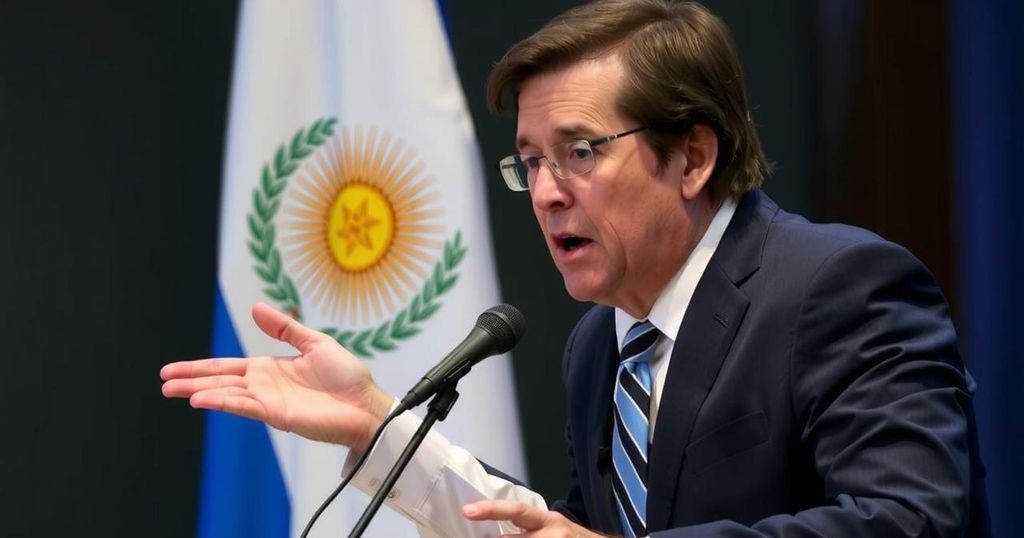Argentina’s Diplomatic Realignment: President Milei Dismisses Foreign Minister Over UN Vote on Cuba

Argentina’s President Javier Milei dismissed Foreign Minister Diana Mondino after Argentina voted in favor of lifting the US embargo on Cuba at the UN, marking a departure from typical pro-US foreign policy. The new Foreign Minister is Gerardo Werthein, previously ambassador to the US. This vote has diplomatic implications, especially for Argentina’s claims over the Falkland Islands.
In a significant diplomatic shift, Argentina’s President Javier Milei dismissed Foreign Minister Diana Mondino following the country’s support of a United Nations resolution to lift the long-standing US embargo on Cuba. The removal of Mondino marks a notable departure from Argentina’s historical alignment with US foreign policy. The resolution saw 186 UN member countries, including Argentina, voting in favor of ending the embargo that has been in place since 1962. With this vote, Argentina became an outlier among nations typically aligned with the United States and Israel, who both opposed the resolution, a position that has sparked diplomatic tensions. The announcement of Mondino’s dismissal was made shortly after the vote, with Mr. Gerardo Werthein appointed as the new Foreign Minister. Werthein previously served as Argentina’s ambassador to the United States, suggesting a shift in diplomatic strategy following this controversial decision. This vote may present challenges for Argentina, particularly as the country navigates its claims over the Falkland Islands, for which the support of Cuba and its allies may be crucial in future resolutions. President Milei supported the resolution by retweeting a post from a lawmaker who praised the administration for not being complicit with oppressive regimes, signaling a strong stance against dictatorships. This situation underscores the complex dynamics in international relations, especially as Argentina reassesses its diplomatic priorities amidst shifting alliances.
The US embargo on Cuba has been a pivotal aspect of American foreign policy since its implementation in 1962, aimed at isolating the communist government of Fidel Castro. Historically, countries have typically aligned with US interests in international voting situations, particularly regarding Cuba, with few opposing the embargo. Argentina has, in the past, opposed the embargo, thus recalling its own historical stance on the matter. However, recent geopolitical changes and the emergence of new leadership under President Javier Milei have prompted a re-evaluation of Argentina’s foreign policy positions, leading to a significant departure from aligning strictly with the US and its allies.
The decision to remove Foreign Minister Diana Mondino following Argentina’s vote at the UN to lift the US embargo on Cuba illustrates a notable and provocative shift in the country’s diplomatic stance under President Javier Milei. This incident highlights the complexities facing Argentina as it navigates its foreign relations and attempts to assert its interests in light of historical alignments and emerging geopolitical realities. The implications of this vote extend to Argentina’s claims regarding the Falkland Islands, suggesting that Argentina may need to engage with traditionally opposed nations like Cuba to gain necessary support.
Original Source: www.france24.com






